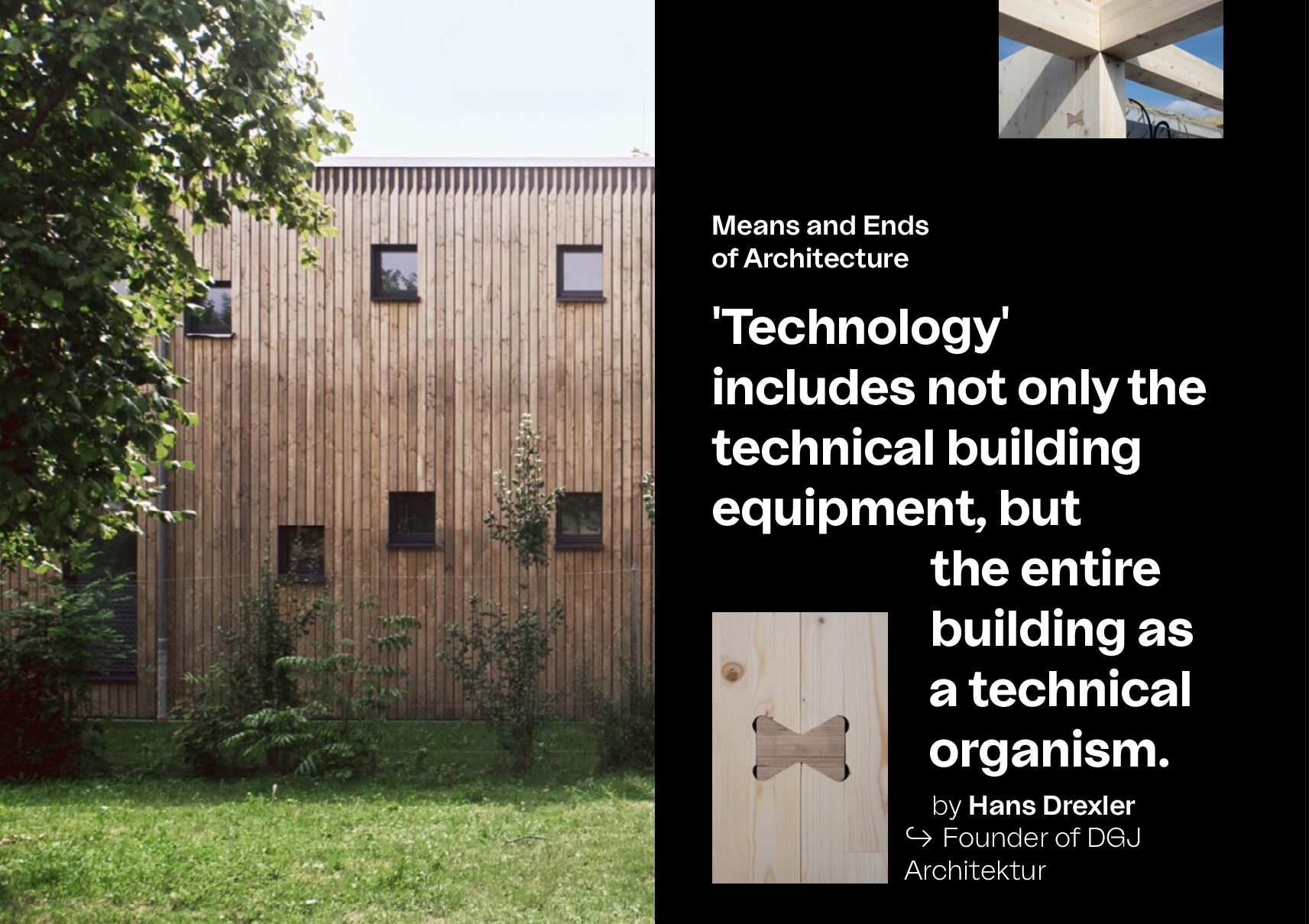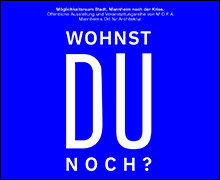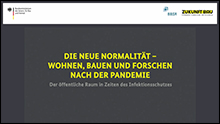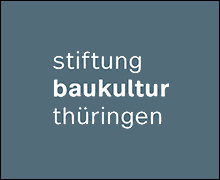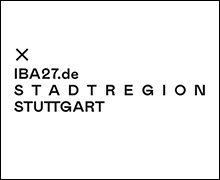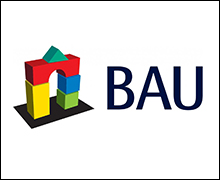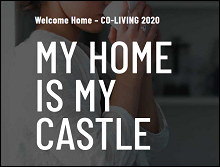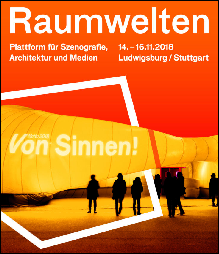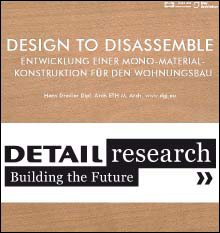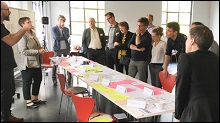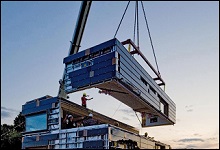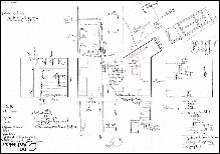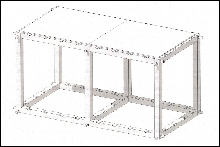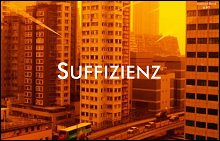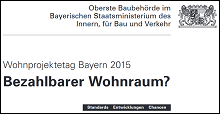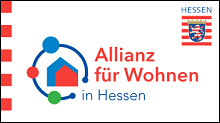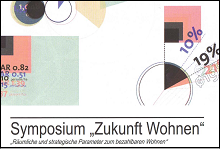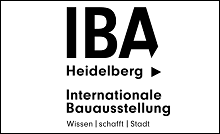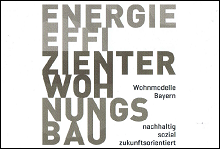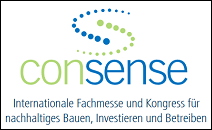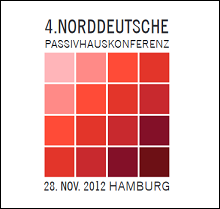Means and Ends of Architecture
Datum: February 4th, 2022
Event series: BUILD Porto – from high to low tech
Organizer: HAS hinterland architecture studio
Excerpt: „Architects love the idea of low-tech buildings:
Simple, self-sufficient structure, that requires little in terms
of technology or explanation. The discipline cultivates the myth of simplicity and identity between design and construction.“
Are you still living? Perspectives for living, working and living
Date: April 1, 2021
Event series: City as a space of possibility. Mannheim after the crisis.
Organizer: M O F A Mannheim’s place for architecture
Excerpt: “Mobile working gained importance even before the crisis. In living with the pandemic, it has now become the norm for many. Other functions that are separated from one another in classic urban planning have also found their way into our private four walls. In this situation it became all too clear that our traditional apartments are not designed for simultaneous living, working, homeschooling, sports and leisure activities. ”
Sufficient planning and building with low resource consumption
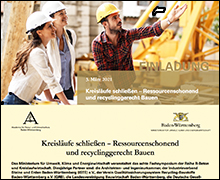
Date: March 3, 2021
Event series: Symposium “Closing cycles – building in a resource-saving and recycling-friendly way”
Organizer: Academy for Nature and Environmental Protection Baden-Wuerttemberg of the Ministry for Environment, Climate and Energy Sector Baden-Wuerttemberg
Human-building interaction - research support
Date: 15th January 2021
Series: „Perspektiven für das Bauen im Wandel“
Organizer: BAU2021
Excerpt: „Urban planning, urban development and housing policy face many challenges. The development of residential complexes must provide solutions for a heterogeneous society with the most varied of needs through the building typology, the density, the number of apartments, the floor plans and the living environment.“
Space miracle downtown
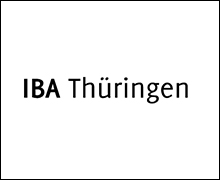
Date: November 17, 2020
Organizer: IBA Thuringia
Space miracle downtown
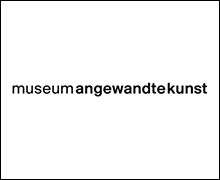
Date: September 22, 2020
Organizer: Museum of Applied Arts (MAK) in Frankfurt am Main
Model project for Vario apartments of the BBSR / Collegiuim Academicum
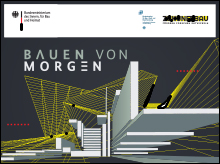
Date: February 18, 2020
Event series: Bauen von Morgen at Bautec
Organizer: Stand of the Federal Ministry of the Interior / BBSR Forschungsinitiative ZukunftBau
Interactive Housing. Adaptable building systems for residential construction
Date: November 25, 2019
Event series: Symposium Neues Wohnen Denken
Organizer: Stiftung Baukultur Thüringen
Excerpt: “Housing is a basic need that is still not or only insufficiently met for many people in all regions of the world. Architecture and urban planning can make a contribution to finding new solutions to secure the availability of living space for everyone. The challenge of affordable housing is to put the costs and the resulting housing value in an optimal relationship. The way there is not mapped out, but depends on many local parameters and cultural influences. ”
Architectural-sociological evaluation of the model project Vario apartments
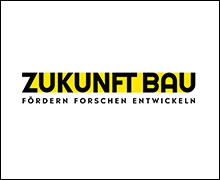
Date: November 4, 2019
Event series: Network meeting Vario
Organizer: BBSR EvaVario
Affordable good living
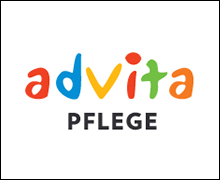
Date: October 17, 2019
Event series: Symposium on living in old age
Organizer: Advita care and living
Energy, Construction and Social Responsibility
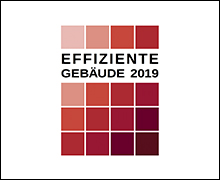
Date: September 5, 2019
Event series: Efficient Buildings
Organizer: Zebau for the BBSR
Apartments, Architecture, Coexistence and Affordability
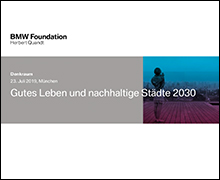
Date: July 23, 2019
Event series: Munich: Good life and sustainable cities
Organizer: BMW Foundation Thinking Room
My home is my castle
Date: 28th/29th Novembre 2018
Series: “Welcome home – Co-Living 2020” in Munich
Organizer: UnternehmerTUM, MINI LIVING and DETAIL
Excerpt: „How will we live in 10 or even 50 years’ time? What will be different about future living? As a launch pad in a new city or the expression of a global, urban lifestyle, co-living will establish itself for certain life situations. What kind of spaces will this in turn require? What role models and thought leaders already exist for the upcoming living models and prototypes, and what needs to be developed? In the PechaKucha format, 10 lateral thinkers and visionaries give their insight into the living worlds of the future.“
Holz: form- und kraftschlüssig. Entwicklung eines Skelettbausystems für flexiblen Wohnungsbau
Presentation date: 14th November 2018
Series: “Raumwelten” in Stuttgart
Organizer: Start-up BW
Excerpt: „The developed building system uses imported materials, technologies and processes to enable a broad deployment. We used standardized and cost-effective building materials. The innovation is to use and merge existing methods, technologies and materials in a more intelligent way.“
Design to disassemble - Entwicklung einer Mono-Material-Konstruktion für den Wohnungsbau
Presentation date: 3rd July 2018
Organizer: DETAIL research & Forschungsinitiative Zukunft Bau
Excerpt: „Building construction is the relevant topic of energy-efficient and sustainable building in the future. Central question here are referring to durability, adaptability, consumption of resources, recyclability and resilience. Moreover also physical presence and coherence of conceptual design and construction are of great importance for sustainable building.“
Work report Collegium Academicum Heidelberg
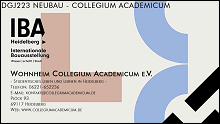
Presentation date: 12th July 2018
Series: Symposium “Baustelle Zukunft” in Darmstadt
Organizer: ina Planungsgesellschaft mbH
Excerpt: „What will construction look like in the future? How do planning processes change? and – is that already possible today? These questions occupy everyone involved in planning and construction in their daily work.” Hans Drexler presents the project report on “Collegium Academicum”, a self-managed students’ home in Heidelberg.
Stadt von übermorgen - Expertenworkshop
Presentation date: 22nd March 2018
Organizer: urbanista+
Excerpt: “Based on the sixteen trend molecules developed in the first project phase, we will now practically review their spatial effects in regional workshops. Therefore, we have initially selected three key areas with particularly strong effects: production and services, health and safety, as well as forms of living and living locations.”
Empirical comparison study of prefabricated construction systems
Presentation date: 13th March 2018
Serie: “IBA Salon” in Erfurt
Organizer: IBA Thüringen GmbH
Excerpt: “Affordable housing is primarily part of an economic discussion and answered with market-regulatory measures. In this study, construction systems with a high degree of prefabrication are to be explored regarding planning, architectural, constructional and technical potentials in order to facilitate and promote affordable housing.”
Housing study. Empirical comparison of joint and indiviudal needs in housing
Presentation date: 6th-7th March 2018
Serie: “8. Projekttage der Bauforschung” in Bonn
Organizer: BBSR (Federal Institute for Building, Urban and Spatial Research)
Excerpt: “Due to increasing individualization, there is high demand for new, diverse forms of living. At the same time, the desire for a sustainable use of resources, rising rents and the shortage of apartments in the metropolitan regions of Germany are provoking new innovative housing projects: community living is being redesigned. The research project investigates which forms of living and architecture reflect social demands and lead to high user satisfaction.”
Development of all-wood construction systems with tight-fitting and force-fitting joints
Presentation date: 6th-7th March 2018
Serie: “8. Projekttage der Bauforschung” in Bonn
Organizer: BBSR (Federal Institute for Building, Urban and Spatial Research)
Excerpt: “The aim of the research project is to develop an innovative wood-skeleton construction system, in which all structural elements are connected by tight-fitting and force-fitting joints made from wood. The systems aims to update the traditional wood carpentry craftsmanship of building without nails using 21st century’s technology. The building system demonstrates that wood-wood joints can be used for all areas of building construction and that they represent a competitive and cost-effective construction method.”
Sufficiency: less is different
Presentation date: 1st March 2018
Serie: “ARCHIKON” in Stuttgart
Organizer: Institut Fortbildung Bau, Architektenkammer BW
Excerpt: “How much is enough? Dr. Hans Drexer and Dr. Michael Kopatz (Wupptertal Institute for Climate, Environment, Energy) deal with the question of sufficient living in terms of increasing population density and lack of housing.”
Sufficiency and standards
Presentation date: 28th July 2015
Serie: Wohnprojektetag Bayern 2015
Organizer: Bavarian Chamber of Architecture
Excerpt: “Which concepts and framework conditions does economic housing need? Which standards are necessary, which ones to challenge? Are building density and living space the only parameters for cost savings? Do users accept unusual solutions? For this reason, the Wohnprojektetag Bayern 2015 is seeking suggestions and answers, especially in the area of planning, which can help to make living affordable.”
Quantitative and qualitative components of housing demand
Presentation date: 20th July 2015
Serie: Alliance for Living in Hesse
Organizer: Ministry of Environment, Hesse
Excerpt: “The “Alliance for Living in Hesse” launched a process which should lead to a sustainable development of residential areas in the Hessian cities and towns and more affordable housing. Residential construction is a highly complex process and includes the consideration of legal, financial, social and ecological aspects.”
Living different
Presentation date: 25th June 2015
Serie: AIT ArchitekturSalon Symposium
Organizer: Make City Festival Berlin
Excerpt: “This could be different if architecture does not simply fulfill social norms reflexively, but negotiates, modifies and transcends them. In this sense, the lecture program “Living different” brings together six idiosyncratic positions of a contemporary architecture, which defies established standards and formats and experimentally explores new scope for the possible.”
Spatial and strategical parameters for affordable housing
Presentation date: 21st April 2015
Serie: 90 Minutes, lecture serie in Department of Architecture
Organizer: Hochschule Oldenburg
Excerpt: “The challenge for affordable housing is above all to put the costs and the resulting housing value in an optimal relationship. How this is done depends on many local parameters and cultural influences. Apart from presenting theoretical approaches, strategies for the creation of affordable housing are shown using the example of outstanding residential buildings.”
Living sufficiently - building sufficiently?
Presentation date: 23rd March 2015
Speaker: Lars-Arvid Brischke, Hans Drexler, Susanne Hofmann, Arne Steffen, Claudia Thiesen
Organizer: IBA Heidelberg, International Building Exhibition; Collegium Academicum e.V.
Excerpt: “In collaboration with the Collegium Academicum e.V., the International Building Exhibition Heidelberg (IBA) is organizing a workshop on sufficiency. The aim is to clarify theoretical questions as well as discussing living, working and building based on the challenges of a planned housing project in Heidelberg.”
Nachhaltige Architektur entwerfen
Presentation date: 5th November 2014
Serie: Wohnprojektetag Bayern 2014
Organizer: Bavarian Chamber of Architecture
Excerpt: “Realizing innovative concepts for energy-efficient housing was the aim of the model project “e% – energy-efficient housing construction” launched in 2007 by the Supreme Building Authority. Four years after the public presentation of the concepts, the Wohnprojektetag Bayern 2014 now presents the completed pilot measures. Have they fulfilled the claim that they are not just energetic and ecological model projects for future-oriented and affordable living, but that they also meet urban, social and Baukultur standards?”
Kontext und Identität als Indikatoren von Nachhaltigkeit und architektonischer Qualität
Presentation date: 1st/2nd July 2014
Serie: Consense – International Trade Fair and Congress for Sustainable Building, Investment, Operations and Maintenance in Stuttgart
Organizer: German Sustainable Building Council – GeSBC
Excerpt: “The congress offers the opportunity to exchange information and ideas with experts from all over the world and to expand specialist knowledge in plenary sessions, intensive workshops and seminars. On the first day investors and communities are to the fore, while the second day is all about planners and architects.”
Passive house technology as a basis for plus-energy-buildings
Presentation date: 28th November 2012
Serie: 4th Passive House Conference of North Germany in Hamburg
Organizer: Zebau GmbH
Excerpt: “An important approach for the successful implementation of energy-efficient buildings is the integrative approach: the energetic aspects and systems are considered an integral part of design and construction and optimized already in early planning stages. Strategies for plus-energy houses are shwon using five different buildings in different locations with different uses.”
Minimum Impact House - Prototype for sustainable building
Presentation date: 8th March 2009
Speaker: Hans Drexler, Daniel Jauslin
Serie: 4th International Conference of the International Forum on Urbanism (IFoU)
Organizer: TU Delft
Excerpt: “The planning process itself became part of our scientific study. In a comparative study we compared advantages and disadvantages of a single-family house in the centre versus new building zones. This included qualitative an quantitative comparison over a life cycle of 50 years with construction, running, maintenance, disassembly and location related mobility.”
